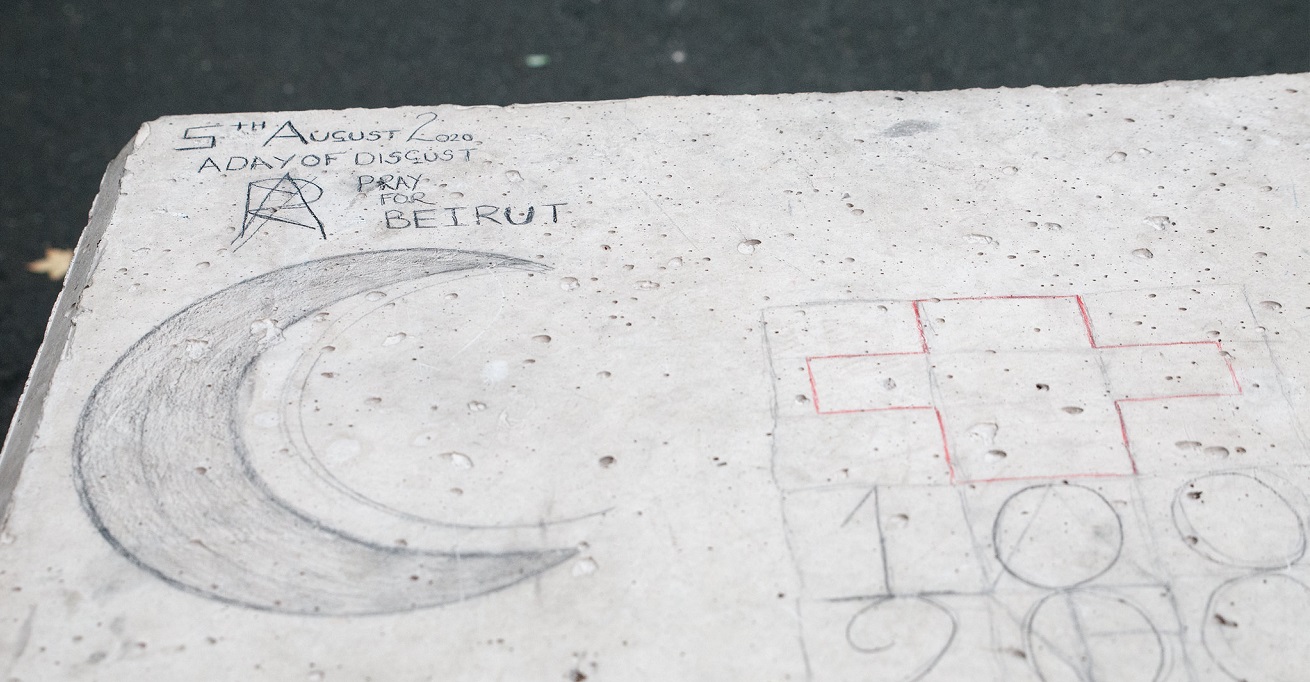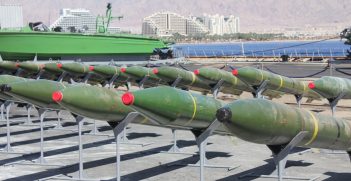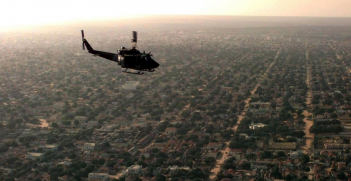Lebanon: The Road to a Failed State

The explosion in Beirut, Lebanon was truly a shocking and tragic event. Though unprecedented, it must not have been unexpected as the government seems to have been aware of its possibility.
August 4 2020, what seemed to be a normal day, turned the lives of many Lebanese into an ultimate tragedy and sent the city of Beirut spiraling into destruction and doom. The explosion was the result of 2700 tons of Ammonium nitrate that caught fire from an area that stockpiled confiscated fireworks nearby. These extremely dangerous and highly explosive materials were stored in Area 12 for six years without the slightest concern for the danger to the residents of the city. During these six years, four prime ministers, multiple ministers, two presidents, and a number of intelligence officers have served in the government. However, an explosion of this magnitude did not push any of those in power (current and former) to come forward and claim any personal or professional responsibility for what happened. The explosion, which has come to be known as the “mushroom cloud blast,” killed over 150 people, wounded over 5000, and destroyed about 300,000 homes. The estimated cost to rebuild the city ranges between $3 billion and $4 billion.
Lebanon is a country run by a collective of political parties that have chosen to treat the country as a business rather than a state with functional institutions and a sustainable economy. After the end of the civil war in 1990, warlords who were key participants and instigators of the war became statesmen and legitimate political actors. This transformation was solidified and recognised by the international community in what became known as Taif Accord.
Alas, the same performative statesmen have been the cause and instigators of the failure of the Lebanese state and are directly responsible for the explosion that destroyed the main port and the city of Beirut. The leaked communications among the head of security, former Army General Jean Kahwaji, President Michel Aoun, former Prime Minister Hariri, and Port Control have indicated the existence of 2700 tons of Amonium nitrate (and in some cases the need to move them to a safer place). This evidence has been dismissed and disregarded by the chain of command which makes them directly responsible for negligence.
In an attempt to show solidarity and support, several international figures have visited Lebanon and come to its aid. Millions of dollars have been offered to rebuild and revive the city. Without claiming responsibility for their role in recognising and championing the status quo, the international community has also played a significant role in prolonging the elite-dominated sectarian regime. Yet they are not and should not be expected to be vanguards of its change. Starting with the French colonial period, the institutionalisation of sectarianism can be illustrated in the power sharing formula among religious divisions, from the Iranian propaganda strategy in strengthening its proxy, Hizbullah, to regional rivalries that have instrumentalised the sectarian divide and aided different political factions accordingly
A number of leaders, particularly French President Emmanuel Macron, have insisted that the Lebanese government produce a new social contract with the Lebanese people to communicate that the current regime has failed and that it’s time for change. Macron suggested the need for a unified government or a government of national unity that represents all factions. In Lebanon, many Macron enthusiasts see him as the saviour that they need – to the extent that almost 50,000 Lebanese signed a petition for the return of the French mandate of Lebanon. Similarly, Turkish Vice President Fuat Oktay, U.S. Under Secretary for Political Affairs David Hale, and a number of other international figures have been welcomed with the same attitude. This demonstrates the Lebanese people’s ultimate desperation and exasperation with the current regime and may solidify the notion that a colonial government will probably be better than the current warlords.
The Lebanese people have been protesting against the current regime for years. These protests exponentially increased in October 2019 after austerity measures crippled the Lebanese economy and led to the collapse of the national currency. The protests achieved the resignation of Hariri’s government and the appointment of a “technocratic” government led by Hassan Diab. The new government made promises to be neutral and to offer solutions to the economic crisis. Alas, and almost expectedly, it failed to do so. Diab’s government failed to achieve any serious goal and has led the country to deeper financial troubles that have resulted in increased unemployment (37 percent), hyperinflation, and deeper socio-economic disparity. Despite all its failures, Diab’s government was still internationally recognised, and the protestors’ demands were only met with words of sympathy. So, to what end are Lebanese people expected to look for a solution from the international community?
Following the explosion, the government has appointed a taskforce to investigate the cause of the blast and to find those who are responsible. In a desperate attempt to look heroic, the Supreme Defence Council declared that the report would be ready in 5 days. Yet, 10 days after the explosion, there was neither a report issued, nor anyone arrested. Numerous reports have indicated clear evidence of communications between several heads of state, ministers, intelligence offices, a former Army General, and the head of National Security that they had been aware of these explosive materials. Many have argued that there should be a distinction between those who were aware of the material and had authority to act, and those who were aware but did not have authority to act. While this distinction has its merits, just the knowledge that there’s a veritable bomb in a densely populated area should have been enough reason to raise an alarm even if one did not have the capacity to act on it.
Under continued pressure from protestors, and as a result of continuous failure, Diab’s government resigned along with several members of the parliament. Hence the opportunity for real change has arisen. There are two possible scenarios that may follow the resignation. The first, more optimistic scenario, is a structural change that can be reflected through an independent and neutral government with a non-affiliated prime minister and ministers. This government can propose and produce a new electoral law that guarantees the participation of independent and civil society members. Another major change that this government can achieve is the neutrality of the judicial system which can then oversee the accountability and prosecution of political figures and strengthen the rule of law. Finally, this government can work toward a realistic framework to revive the economy before it completely collapses. But this scenario is an optimistic one and requires both persistent and consistent domestic pressure (for example through protests and continuous resignations from other members of the parliament) and some international support.
The second and more plausible scenario is a quick-fix solution that aims to inject trails of hope and continuity into the Lebanese society and economy. The call for a unified government will seem appealing enough for other countries to endorse it and for the International Monetary Fund to provide economic incentives. However, this superficial solution is only a short-term way of reviving the remainders of a state before it falls into the abyss. If achieved, this scenario will ultimately lead Lebanon to become a fragmented failed state.
The explosion in Beirut highlights the deeply entrenched corruption, incompetence, and lack of accountability that exemplify the current ruling structure. Alongside the explosion, issues such as garbage crisis, shortage of electricity, and currency collapse also demonstrate the failure of that same structure. A superficial solution as currently proposed can only mean that more failures due to corruption will take place and will most definitely lead the country into chaos.
Dr Mariam Farida is an Academic Learning and Language Facilitator and UNSW Middle East expert. Dr Farida has been awarded her PhD in Security Studies and Criminology. Her research interests include Middle East politics, non-state groups, global security, terrorism, counterterrorism operations, and national security. Her research has been published in journals such asInternational Review for Social Research,Journal for Policing, Intelligence, and Counter Terrorism, and Handbook of Terrorist and Insurgent Groups: A Global Survey of Threats, Tactics, and Characteristics. She is also the author of Religion and Hezbollah: Political Ideology and Legitimacy (Routledge, 2020).
This article is published under a Creative Commons Licence and may be republished with attribution.





